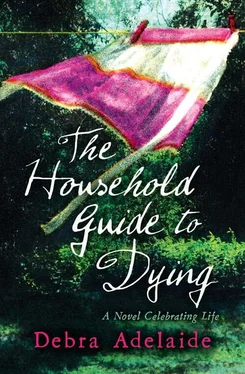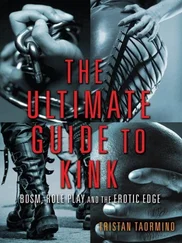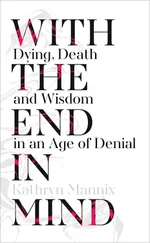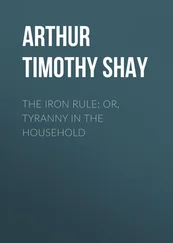Mitchell finally registered surprise. He put down the glass he was polishing, tossed aside the towel.
Oh, Delia. I always knew you’d return. Not with that, though.
Who would?
He gazed at me for a few moments, as if drawing out all the years in between.
And you’ve still never found Sonny’s father, I suppose?
No, never.
I became entranced by Van the night I first met him. He was playing guitar in a three-man band, singing and entertaining the small gathering with extemporised anecdotes and jokes. It was just an undergraduate trio – on reflection more audacious than sophisticated, making up in energy what it lacked in polish – but then, I was sixteen and suburban. He was twenty-two, and so much more charming and confident than the teenage boys I knew, who functioned via grunts and jerky movements, and who, if you went out with them, thought it was generous to buy you a bottle of Island Cooler then ignore you for the rest of the night.
It was a café and bar, where I shouldn’t have been, but I’d escaped from an evening football match that my school’s team was playing at the university grounds, and wandered up to Newtown. The venue was a dark place, with lava lamps on the bar and candles on the tables. I listened to the music for a set then ventured to the bar. I was ordering a glass of wine and handing over a dollar to the barman, who looked stoned, when someone whispered into my ear from behind,
Are you sure you’re eighteen?
I turned to see the guitarist. Up close he was all silky locks and neat beard: his eyes seemed to burn brighter among the dark blond hair. My first thought was that he looked like Jesus Christ, my second thought was how stupid that was, since no one knew how Jesus looked.
Of course, I lied.
I was delighted at the attention. He followed me back to my table with a drink and sat down uninvited while a thrill travelled through me. He introduced himself.
Van, I said. That’s an unusual name.
Oh, I changed it.
Changed it? Could one change one’s own name? Awesome.
My parents called me Ivan, so I just changed it to Van a few years ago. After Van Morrison. It reflects my personality more, you know.
Oh. Yeah, I said, pretending to know who Van Morrison was.
What are you drinking? he asked, although it was obvious.
Moselle. I took a sip. It was too sweet, but Jean drank Lindemans Ben Ean at home and it was all I could think of to order.
Old ladies’ drink, he said. You should try some of this.
He was drinking Jack Daniel’s and Coke. I watched him as he chatted, envious and far too admiring to notice that he talked only about himself. When he told me that he was a music student but had been dragging out his degree for several years, that he found the lecturers conservative and boring, the work a complete pain, and the program designed to stifle real talent, and when he confided that playing his own style of music was so much more creatively fulfilling, I couldn’t have agreed more.
I returned the next Friday night, and afterwards we went back to the terrace house he shared near the university. I didn’t go home for the rest of the weekend. Jean was furious.
Van’s mystique only deepened. He laughed at her job as a hairdresser, my vague ideas about becoming a teacher or librarian when I left school. His parents were circus performers, living up north in a town that had a personality of its own, a town that was famous for its circus. That sounded exotic to me, but he insisted that the place was just another small town. And he felt confined by the circus: he was a musician and singer, not a novelty performer. He’d left when he was sixteen.
My dull sense of inferiority, of having missed out – on something, I wasn’t sure what – only sharpened. I began to spend more time with him. I was too keen to be his girl. Too eager to embrace his creatively fulfilling world.
It took me years to understand that it had all been veils and mirrors, the stuff of tinsel and papier-mâché and smoke machines. What he’d come from, a circus background. What he did, pretending to be an artist of the calibre of Van Morrison. Illusions that were necessary for performing, dangerous in real life.
In Amethyst, his home town, nothing was imaginary. Young motherhood was palpable, at times painfully real. From time to time I’d thought about moving south, back to the inner city, where it was common for children to have no fathers, no mothers, serial fathers or even two mothers. Or back to the suburbs, to be near my mother. But although I had written to Jean to let her know where I was, and again after Sonny was born, I made it clear I wanted nothing from her. Jean being right about Van made it harder. As Sonny grew I sent her the occasional photo along with a note. I was independent and capable, and yet so painfully young. The truth was I didn’t know what I wanted from Jean, didn’t feel I owed her any apology, yet knew in my heart she didn’t owe me one either. She and Van had met rarely, as he hated coming to my place, and the first time I invited her to the bar to see him perform she left early and refused to come again. She hated his recreational drug use, his vague ambitions, his nocturnal lifestyle, even his diet. She was suspicious of his past, contemptuous of his unconventional family, scathing about his musical talents. At sixteen, seventeen, I embraced everything my mother loathed. I left Sydney and travelled north, towards the town from which Van had come. There had been no fight, no scene, nothing to suggest he was going to leave. And so I didn’t believe it. He would have gone back home to Amethyst. I believed that. I needed to. He was from the circus, and circus stays in the blood, calls you back home. That’s what he’d told me. And it was getting on for winter then. I would go north too, it would be warm there. I would find Van and convince him we were meant to be together and to have this baby. When I arrived I found that the place was stamped with his absence, the circus empty of him and all his family, probably the only circus family ever to leave for good. But after some weeks, after settling into the caravan, I felt like staying. And was unwilling to go back and face my failures, which were several. My friends going on to university without me. Jean being right again, then being too reasonable, to make me feel better for being so wrong. Me being scoured by my own gratitude when she helped me out, as she would. Me being bitten raw by my pride.
Once I’d settled in Amethyst, I discovered I had no real attachment to the city where I’d lived my short life, and I was still ripe for adventure, burning with a thirst for independence that I felt would sustain me wherever I would go, whatever I did. In a few months I would give birth, and I would be the best mother ever. I would more than make up for my baby’s lack of a father. My child would be born there, and it would belong there and if its father never returned at least it would be in its home.
For a long time I was filled with that arrogant confidence of youth, the conviction that you are desired as much as you desire: Van would want me and his child sooner or later, and would find the prospect of coming home irresistible. For years, part of me believed that, though there was not the slightest scrap of evidence for it. Van’s parents had moved further north, and his great-aunt had recently gone to a convalescent hospital by the coast. The only remains of his family in town were underground. All I had were Sonny and a fierce determination to make everything as right as I could.
Dear Delia
Okay, I’ll forget about the wedding cake, but I’d like your advice on another matter. My daughter will wear my old white silk veil, edged in lace. But it is spotted with brown stains and has yellowed around the creases. Should I bleach it?
Читать дальше












